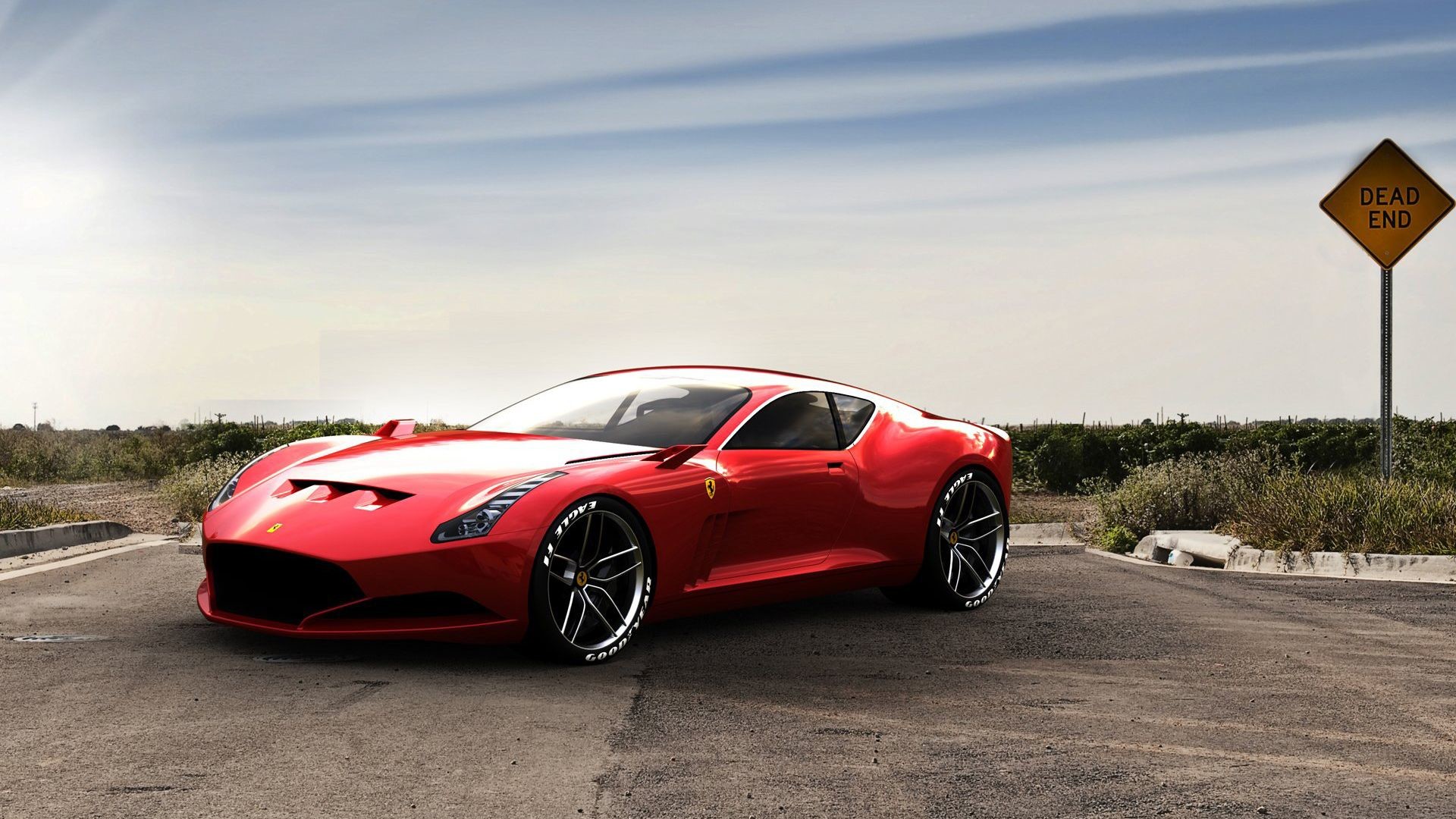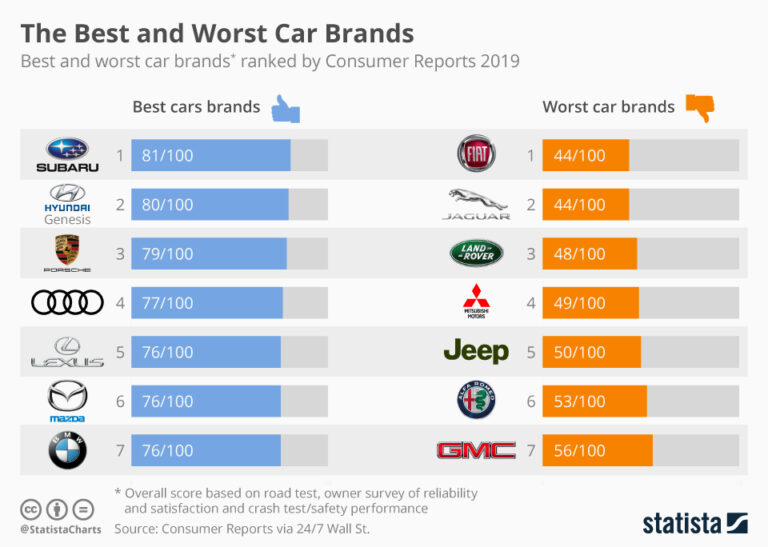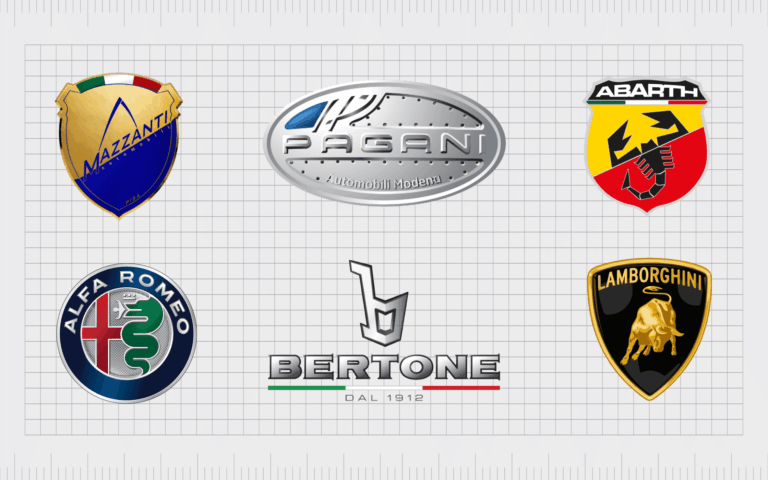What Car Brand Should I Buy? Your Ultimate Guide to Making the Right Choice
What Car Brand Should I Buy? Your Ultimate Guide to Making the Right Choice cars.truckstrend.com
The journey to buying a new car is often exciting, filled with dreams of cruising down the highway in your perfect ride. However, before you even consider models, colors, or features, a fundamental question looms large for many prospective buyers: "What car brand should I buy?" This isn’t just a simple query; it’s a critical starting point that can significantly influence your long-term satisfaction, ownership costs, and even your driving experience. Choosing the right brand is about aligning a manufacturer’s philosophy, reputation, and vehicle offerings with your unique needs, lifestyle, and financial situation.
In an automotive landscape bustling with dozens of brands, each promising innovation, reliability, or luxury, the decision can feel overwhelming. This comprehensive guide aims to demystify the process, providing you with the knowledge, tools, and actionable insights to confidently navigate the options and ultimately select the car brand that’s truly right for you.
What Car Brand Should I Buy? Your Ultimate Guide to Making the Right Choice
Understanding Your Needs: The Foundation of Your Decision
Before you even glance at a brand logo, the most crucial step is to look inward. What are your specific requirements, priorities, and constraints? A clear understanding of these will act as your compass, guiding you through the myriad of choices.
1. Define Your Budget (Beyond the Purchase Price)
Your budget isn’t just about the sticker price. It encompasses the total cost of ownership (TCO), which includes:
- Purchase Price: New vs. used, negotiation room.
- Fuel/Charging Costs: MPG for gasoline, kWh efficiency for EVs.
- Insurance Premiums: Varies significantly by car type, brand, and driver.
- Maintenance & Repairs: Scheduled servicing, potential parts costs.
- Depreciation: How much value the car loses over time.
- Registration & Taxes: Annual fees.

2. Assess Your Lifestyle and Usage

- Family Size: Do you need space for kids, car seats, pets, or just yourself?
- Commute: Long highway drives, short city hops, or a mix?
- Cargo Needs: Do you haul groceries, sports equipment, DIY supplies, or need towing capacity?
- Driving Environment: Urban traffic, suburban streets, rural roads, or off-road adventures?
- Climate: Do you need all-wheel drive for snow or severe weather?

3. Prioritize Your Non-Negotiables
List what matters most to you. Is it:
- Reliability & Durability: A car that just runs, year after year, with minimal fuss.
- Safety: Top crash test ratings, advanced driver-assistance systems (ADAS).
- Fuel Efficiency/Eco-Friendliness: Lower emissions, reduced fuel costs.
- Performance & Driving Dynamics: Power, acceleration, responsive handling.
- Luxury & Comfort: Premium materials, quiet cabin, smooth ride.
- Technology & Infotainment: Large touchscreens, smartphone integration, navigation.
- Resale Value: Protecting your investment for future trade-in or sale.
- Brand Prestige/Image: The status or reputation associated with a brand.
Exploring Car Brand Categories and Their Philosophies
Car brands often gravitate towards certain strengths, forming distinct categories. Understanding these general philosophies can quickly narrow down your options.
1. Economy & Value-Oriented Brands
- Examples: Toyota, Honda, Hyundai, Kia, Mazda, Subaru, Nissan, Ford (many models), Chevrolet (many models).
- Philosophy: Focus on reliability, fuel efficiency, practicality, safety, and affordability. They offer a strong value proposition, often with low ownership costs and good resale value.
- Best For: Everyday commuters, families on a budget, buyers prioritizing long-term dependability and sensible features over cutting-edge luxury or extreme performance.
2. Mainstream Brands with Broad Appeal
- Examples: Volkswagen, Skoda, Peugeot, Renault, Ford (higher trims), Chevrolet (SUVs/trucks).
- Philosophy: Balance of features, comfort, and performance for a wide audience. They often offer a good mix of styles, from sedans to SUVs, and may introduce more advanced tech than pure economy brands, without the premium price tag.
- Best For: Buyers seeking a well-rounded vehicle that offers a good blend of practicality and modern amenities without breaking the bank.
3. Luxury & Premium Brands
- Examples: BMW, Mercedes-Benz, Audi, Lexus, Volvo, Acura, Genesis, Cadillac, Land Rover.
- Philosophy: Emphasize sophisticated design, high-quality materials, advanced technology, superior comfort, and often exhilarating performance. They offer a refined driving experience and a sense of prestige.
- Best For: Buyers prioritizing comfort, status, cutting-edge technology, and a premium driving experience, and who have a higher budget for both purchase and ownership.
4. Performance & Sports Brands
- Examples: Porsche, Ferrari, Lamborghini, McLaren, Aston Martin, Dodge (performance models), Chevrolet (Corvette, Camaro).
- Philosophy: Dedicated to speed, agility, and exhilarating driving dynamics. Design is often aerodynamic and aggressive, with powerful engines and sport-tuned suspensions.
- Best For: Enthusiasts who prioritize raw power, precise handling, and an adrenaline-pumping driving experience, often at the expense of practicality or fuel efficiency.
5. Niche & Specialized Brands
- Examples: Jeep (off-road), Tesla (electric vehicles), Ram (trucks), Rivian (electric adventure vehicles).
- Philosophy: Focus on excelling in a specific segment or technology. Jeep, for instance, is synonymous with off-road capability, while Tesla pioneered mass-market electric vehicles.
- Best For: Buyers with very specific needs, such as extreme off-roading, a commitment to electric mobility, or heavy-duty towing.
Key Factors to Consider When Evaluating Specific Brands
Once you have a general category in mind, it’s time to dive deeper into the specifics of individual brands.
- Reliability & Durability: Consult independent ratings from organizations like J.D. Power, Consumer Reports, and RepairPal. These studies track long-term dependability and common issues, giving you insight into a brand’s engineering quality. Brands like Toyota, Honda, and Lexus consistently rank high.
- Safety Features & Ratings: Check crash test results from the National Highway Traffic Safety Administration (NHTSA) and the Insurance Institute for Highway Safety (IIHS). Also, evaluate the brand’s commitment to advanced driver-assistance systems (ADAS) like automatic emergency braking, lane-keeping assist, and blind-spot monitoring. Volvo and Subaru are often lauded for their safety focus.
- Fuel Efficiency/Powertrain Options: Research the average MPG for gasoline cars or range/efficiency for EVs. Consider hybrid, plug-in hybrid (PHEV), or full electric (EV) options if fuel costs or environmental impact are high priorities. Toyota (hybrids), Hyundai/Kia (diverse powertrains), and Tesla (EVs) are strong contenders here.
- Resale Value: How well does the brand’s vehicles hold their value over time? Brands with strong reliability and demand, like Toyota, Honda, Subaru, and certain luxury brands like Porsche, tend to have excellent resale values, saving you money in the long run.
- Technology & Infotainment: Evaluate the user-friendliness of the infotainment system, connectivity options (Apple CarPlay, Android Auto), digital displays, and other tech features. Some brands, like Mercedes-Benz (MBUX) and Audi (MMI), are known for their sophisticated interfaces, while others prioritize simplicity.
- Driving Experience & Comfort: This is subjective but crucial. Test drives are essential. Consider seat comfort, interior space, ride quality (smooth vs. firm), noise levels, and how responsive the steering and brakes feel.
- Maintenance & Parts Availability/Cost: Research the cost of routine maintenance and common repairs. Some brands have readily available and affordable parts, while others, particularly luxury or exotic brands, can be very expensive to service. Consider the density of dealership networks in your area.
- Warranty: Understand the standard warranty (bumper-to-bumper, powertrain) and any extended warranty options. Kia and Hyundai offer some of the industry’s longest warranties.
- Brand Reputation & Customer Service: Look beyond the cars themselves. How does the brand treat its customers? Online forums, social media, and word-of-mouth can offer insights into the overall ownership experience and dealership quality.
How to Research and Compare Brands Effectively
- Start Broad, Then Narrow Down: Use your defined needs to eliminate entire categories of brands.
- Read Reputable Automotive Reviews: Websites like Edmunds, Kelley Blue Book (KBB), Car and Driver, MotorTrend, and Consumer Reports provide in-depth reviews, comparisons, and long-term reliability data.
- Watch Video Reviews: YouTube channels offer visual tours, driving impressions, and detailed feature explanations.
- Visit Dealerships (But Don’t Buy Yet): Get a feel for the different brands and their models in person. Pay attention to the sales experience and service department.
- Test Drive, Test Drive, Test Drive: This cannot be stressed enough. Drive multiple models from different brands that fit your criteria. Experience how they feel on roads you typically drive. Consider renting a model for a few days if possible.
- Talk to Owners: Engage with current owners on online forums or social media groups. They can offer invaluable real-world perspectives on ownership.
Practical Advice and Actionable Insights
- Be Patient: Don’t rush the decision. A car is a significant investment.
- Prioritize Your Needs, Not Popularity: Just because a brand is popular doesn’t mean it’s right for you. Stick to your defined priorities.
- Consider the Total Cost of Ownership: Look beyond the monthly payment. Fuel, insurance, and maintenance add up.
- Think Long-Term: How long do you plan to keep the car? This impacts your focus on reliability, depreciation, and long-term maintenance costs.
- Don’t Be Afraid to Cross-Shop: Even if you’ve always driven a certain brand, be open to exploring others. You might be surprised.
- Leverage Technology: Use online comparison tools, configurators, and review aggregators to streamline your research.
Potential Challenges and Solutions
- Information Overload: Break down your research into manageable steps. Focus on one or two key criteria at a time.
- Brand Loyalty vs. Best Fit: It’s easy to stick with what you know. Challenge your biases and objectively evaluate all options based on your current needs.
- Budget Creep: It’s tempting to stretch for more features or a higher trim. Stick to your defined budget to avoid financial strain.
- Misinformation/Bias: Rely on multiple, reputable sources for information. Be wary of overly enthusiastic sales pitches or biased online opinions.
What Car Brand Should I Buy: A Conceptual Price & Strength Guide
This table provides a generalized overview of car brands based on typical price tiers and their renowned strengths. Please note that prices are highly variable based on model, trim, new/used condition, location, and negotiation, and are presented as broad estimates for typical models within the brand’s lineup.
| Brand Category (General Price Tier) | Example Brands | Typical New Model Price Range (USD) | Primary Strengths Often Cited | Best Suited For |
|---|---|---|---|---|
| Economy/Value (Affordable) | Toyota, Honda, Kia, Hyundai, Mazda, Subaru, Nissan, Mitsubishi | $20,000 – $40,000 | Reliability, Fuel Efficiency, Low Maintenance, High Resale Value, Practicality, Safety (Subaru) | Budget-conscious buyers, long-term owners, families, commuters, those prioritizing peace of mind. |
| Mainstream/Broad Appeal (Mid-Range) | Ford, Chevrolet, Volkswagen, Jeep (entry), Dodge, Chrysler | $25,000 – $60,000 | Versatility, Diverse Offerings (Trucks, SUVs), Technology, Performance (Dodge), Off-road (Jeep), European Styling (VW) | Buyers seeking a balance of features, performance, and practicality; specific lifestyle needs (e.g., towing, off-roading). |
| Entry-Luxury/Premium (Higher Mid-Range) | Acura, Infiniti, Genesis, Volvo, Buick, Lexus (entry) | $40,000 – $70,000 | Refined Interiors, Advanced Tech, Strong Safety, Smooth Ride, Good Value in Premium Segment, Reliability (Lexus) | Buyers desiring a taste of luxury and advanced features without the top-tier luxury price; prioritizing comfort and safety. |
| Luxury/Performance (Premium) | BMW, Mercedes-Benz, Audi, Lexus (higher), Land Rover, Porsche (entry) | $50,000 – $100,000+ | Driving Dynamics, Prestige, Cutting-Edge Technology, High-Quality Materials, Performance, Comfort | Enthusiasts, status-conscious buyers, those prioritizing a premium driving experience, advanced tech, and comfort. |
| Ultra-Luxury/Exotic (High-End) | Ferrari, Lamborghini, Rolls-Royce, Bentley, McLaren, Porsche (higher) | $150,000 – $500,000+ | Exclusivity, Extreme Performance, Bespoke Craftsmanship, Ultimate Prestige, Unique Driving Experience | Collectors, ultra-high-net-worth individuals, performance purists seeking the pinnacle of automotive engineering and status. |
| Specialized/EV-Focused (Variable) | Tesla, Rivian, Lucid Motors, Polestar | $40,000 – $150,000+ | Electric Powertrains, Cutting-Edge Software/Autonomy, Performance (Tesla), Off-road EV (Rivian), Design (Polestar) | Early adopters, environmentally conscious buyers, tech enthusiasts, those seeking alternative powertrains. |
Disclaimer: This table is a general guide. Specific models within each brand can span multiple price ranges and excel in various areas. Always research specific models and current market prices.
Frequently Asked Questions (FAQ)
Q1: Is brand reliability the most important factor?
A1: While crucial for long-term satisfaction and lower ownership costs, "most important" is subjective. For some, safety, fuel efficiency, or performance might take precedence. It’s about balancing reliability with your other top priorities.
Q2: Should I buy a new or used car from a particular brand?
A2: This depends on your budget and preferences. New cars offer the latest tech, full warranty, and no prior owner issues. Used cars offer significant savings due to depreciation. Some brands (e.g., Honda, Toyota) hold their value well, making their used models still relatively expensive but reliable. Luxury brands often depreciate faster, making them more affordable as used cars, but maintenance costs can still be high.
Q3: Which car brand offers the best fuel efficiency?
A3: Brands like Toyota and Honda are leaders in hybrid technology, offering excellent MPG. Tesla, Hyundai, Kia, and Ford are strong contenders in the electric vehicle (EV) space, providing zero-emission driving and lower "fuel" costs. It often depends on the specific model and powertrain.
Q4: Are luxury cars worth the extra cost?
A4: "Worth" is personal. Luxury cars offer superior comfort, performance, advanced technology, and often a higher level of prestige. If these aspects significantly enhance your driving experience and fit your budget (including higher maintenance and insurance), then yes, they can be worth it. If you prioritize pure practicality and low cost, a mainstream brand might be a better fit.
Q5: How important is a car brand’s resale value?
A5: Very important, especially if you plan to trade in or sell your car within 3-5 years. A higher resale value means you lose less money to depreciation, effectively lowering your total cost of ownership. Brands like Toyota, Honda, Subaru, and Porsche often have strong resale values.
Conclusion: Your Car, Your Choice
Choosing the "right" car brand is a deeply personal decision. There’s no universal "best" brand, as the ideal choice hinges entirely on your unique needs, lifestyle, and budget. By diligently assessing your priorities, understanding the general philosophies of different brand categories, and thoroughly researching specific brands based on key factors like reliability, safety, and total cost of ownership, you empower yourself to make an informed decision.
Remember, the goal isn’t just to buy a car; it’s to invest in a vehicle that will reliably serve your needs, enhance your daily life, and bring you satisfaction for years to come. Take your time, do your homework, and most importantly, enjoy the journey to finding your perfect automotive match.




